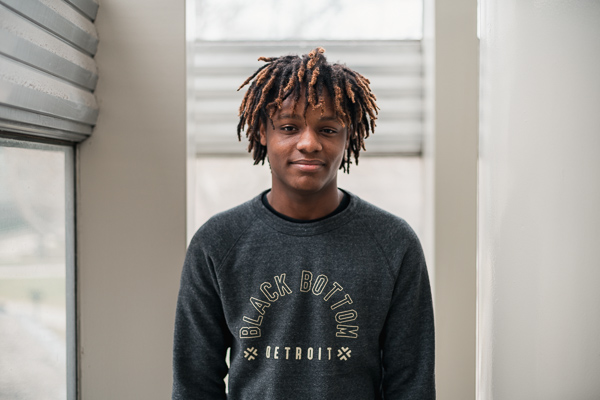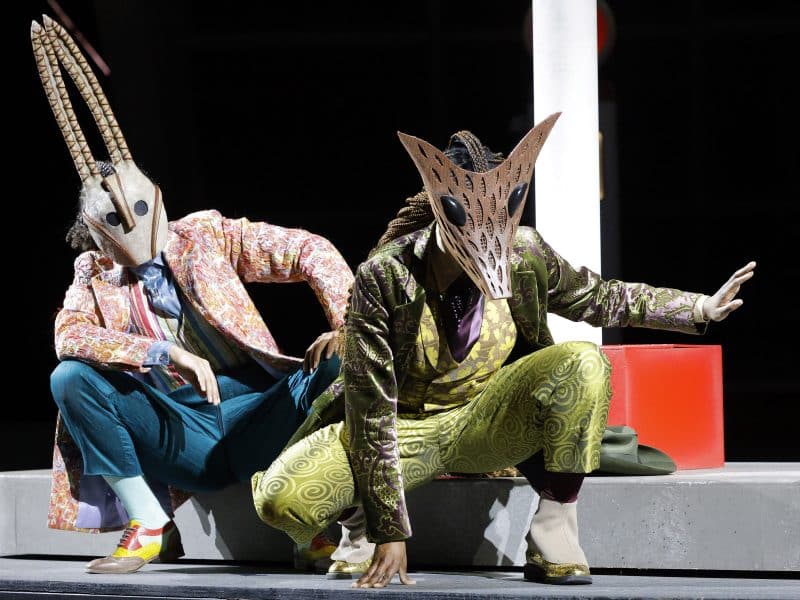VOICES: How music and writing helped one Detroit youth through high school
In the middle of his 5th grade year, Eldric Laron's family moved to a different part of the city and he transferred schools. The change was hard, but creative writing helped him overcome it.

This essay is part of the 2018 essay series “VOICES: Overcoming Challenges in Learning” from Michigan Nightlight. In this series, we will feature the authentic voices of teachers, parents, students, administrators, counselors, medical practitioners, and others about a challenge to learning they’ve encountered and how they are working to overcome it.
Lately, I face the realization that I am 16 years old and soon to be a senior in high school. When I realize this, my next concern is often how to live my life so that I have the things that I need to be successful. As I see it, everything I do has to have purpose and should be a reflection of my best work, but the measure of what that means and how I know I’m making the right decisions can be a challenge.
My journey is not that different from the way many young people in Detroit feel—displaced, disconcerted, unfulfilled—but through a commitment to my artistic growth and a sense of resilience, I have been able to unlock doors for myself. I am learning to leverage my strengths and address my weaknesses, despite an environment that set me up to fail.
Halfway through my 5th grade year, I moved across the city and transferred from Joy Preparatory Academy in Detroit to Reach Charter Academy in Roseville. This cultural and environmental change was sudden and difficult to navigate. Most of my time was spent trying to fit in, to learn from scratch how to socialize and find success.
Changing schools made me feel expendable and unneeded. I would think back to my childhood friend Antonio who I used to write and make music with; I leaned on those memories to deal with my circumstance. Through music and writing, I was able to carve a space for myself to exist that felt authentic and necessary. I made new friends and developed a discipline for learning that had evaded me in the classroom.
Throughout my academic life, teachers and family knew that I considered myself an artist. A common response to this was that I needed a back-up plan or something to catch my fall when it inevitably doesn’t work out. This used to frustrate me and made me think those around me didn’t believe in me or what I wanted to do with my life and career.
But their disbelief has been a prime motivator that drove me to take my craft and focus more seriously.
Many people find the idea of academics and artistry at odds with one another. But I have learned there is a balance of the two that propels both the student-self and the artist-self forward. They work in tandem, across disciplines, and have allowed me to develop tools that may be unconventional. This is how I learn—how many young people do, in fact—by creating hybrid approaches to understanding that don’t rely on a single set of tools or accepted strategies.
As a high school student, many of these ideas took root through two major spaces in my life: Arts Academy in the Woods, a performing arts charter high school in Fraser, and InsideOut Literary Arts, a youth-serving arts nonprofit that has been in Detroit for over two decades. In these institutions I found the capacity to articulate my goals as a student-artist and have come to recognize challenges as teachable moments instead of setbacks. As a younger student, failure felt like a demerit whereas now it feels like an opportunity.
By validating my interests, both my school and my extracurricular community didn’t spend energy telling me what I could not do. Instead they focused on what my vision for myself was and how to best leverage resources in my favor. Unfortunately, this approach is not mirrored in many classrooms or in the lives of my peers. We force young people to pigeon-hole themselves and align with data standards instead of true learning. We, as a community, do a poor job at critically listening to the youngest among us. We fear letting young folks steer our own destiny. Almost every space I enter presents an expectation of failure because of my age.
If a young person in your life has the audacity to dream big, your job is to scaffold it into reality instead of shrinking it into a preconceived standard. As young people, we have to endure this critique and resist it from taking root as truth.
I wish I could have told my younger self that.
This article is part of Michigan Nightlight, a series of stories about the programs and people that positively impact the lives of Michigan kids. It is made possible with funding from the W.K. Kellogg Foundation. Read more in the series here.
Photo by Nick Hagen.




